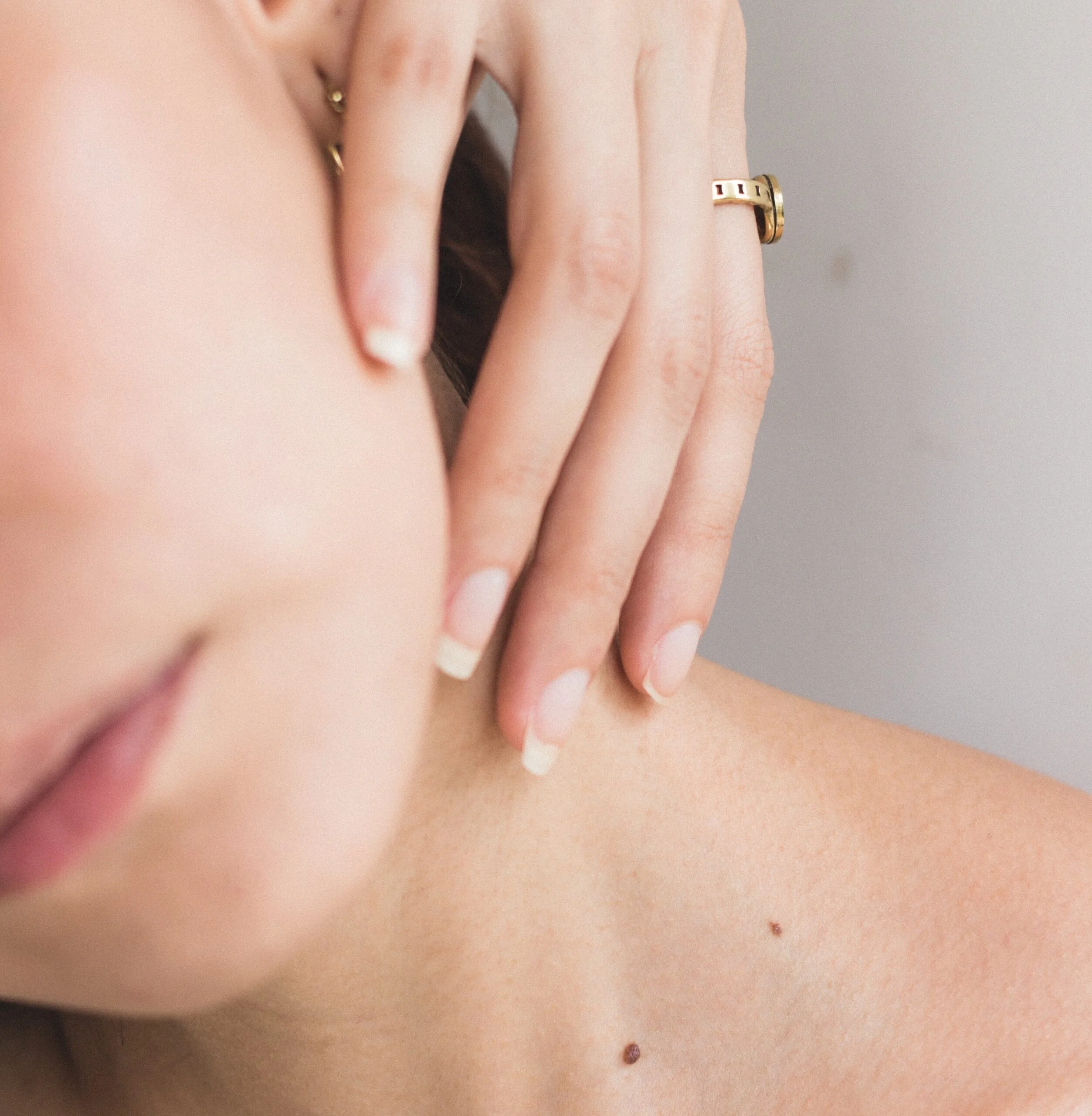
It’s likely that you often come across the term ‘natural barrier’ or ‘barrier function’ when you’re choosing skincare products or researching ways to take care of your skin. You’ll find experts agree that it’s hugely important in terms of your skin’s overall health, so you may be surprised to hear that your barrier function is often compromised by some of today’s most popular skincare products. With sunnier weather on its way, and perhaps holidays in the sun ahead of many of us, it’s a good time to think about our skin’s natural barrier and how to protect it.
What is the skin barrier?
Our skin is made up of multiple layers, each there to perform an important function to protect our bodies. The stratum corneum is the outermost layer of the epidermis, and consists of tough skin cells called corneocytes that are bound together by lipids. These skin cells contain keratin and natural moisturisers, whilst the lipid layer contains cholesterol, fatty acids, and ceramides. This is your natural skin barrier, and is made up of layers of the most resilient skin cells to protect your body from environmental toxins and pathogens, as well as retaining the water inside your body. This barrier is key in many ways, not just for the appearance of your skin, but also for good overall health. It must be protected in order to keep your body functioning well.
What is the skin barrier’s function?
The skin is the largest organ system in the body. Its most important function is to protect the body from anything in the environment that may cause harm if absorbed. The skin also helps to regulate body temperature and prevent water loss or absorption, all of which is essential to a healthy functioning body. Provided that the skin’s natural barrier is functioning correctly, it will help defend the body against dehydration, toxins, and bacteria. Beyond this, the stratum corneum also protects the numerous layers of skin beneath.
These layers are: the stratum lucidum, a thin, lighter layer only present on the palms and soles of the feet; the stratum granulosum, which is made up of cells whose components contribute to the formation of the outer skin layer; the stratum spinosum, characterised by skin cells that are connected by desmosomes which give the cells a spiny appearance under a microscope; and finally the stratum basale, the deepest layer of epidermis, made up of cuboidal and columnar cells.
What happens if the skin barrier is damaged?
Simply put, a damaged skin barrier cannot retain the essential components needed to remain healthy, such as fatty acids, cholesterol and ceramides. When your skin barrier is damaged or isn’t functioning properly, you may find your skin becomes dry, itchy, or rough, and that acne, areas of discolouration, or sensitivity arise. There are a number of factors which can compromise the health of your skin’s natural barrier, some of which are very much avoidable and may even be the result of over-zealous but ill-advised skincare. Excessive exfoliation, over-use of retinoids – or use of too highly concentrated formulae – or alkaline products such as soaps, can all take their toll on the skin barrier. Additionally, exposure to sun, allergens, irritants, pollutants, harsh chemicals, steroids, and even stress can all have an impact.
What can you do to support the skin’s natural barrier?
Perhaps counterintuitively for those who take a great deal of care with their skin health, looking after the skin’s natural barrier can often be a case of doing less, rather than more. Maintaining your skin’s barrier requires balance and restraint, ensuring you’re always kind and gentle. This may mean simplifying your skincare routine to really focus on those products or ingredients which are best suited to you, and do not cause any stress to your natural barrier. As this can be a tricky balancing act, consulting a skincare expert is a wise investment and saves a lot of trial and error.
You can also look out for particular ingredients in your skincare products which work to replenish and support the skin barrier. Products rich in allantoin, ceramides, glycerin, hyaluronic acid, linoleum acid, niacinamide, and probiotics will all help restore healthy function to the stratum corneum. We recommend ALLSKIN MED Firming Serum which contains skin hydrators as well as Nicinamide, Vitmain C and E, calcium and SCA PRO growth factors which work deep into the dermis to improve the structural integrity of your skin. Also consider the pH of any products you’re using, staying as close as you can to your skin’s natural pH of around 5.7. It is best to avoid harsh exfoliants with large or particular rough grains. Perhaps most importantly of all, always ensure you’re using really good sun protection all year round, such as Heliocare 360.
Waterhouse Young’s Dr Alexa Croffey MBChB (Hons) says: “The skin’s natural barrier is really the foundation of a healthy and sustainable complexion. It can be tempting to over-exfoliate or over-use some of the potentially harsh skincare products that have become popular in recent years, but we should exercise caution and ensure balance. Without maintaining our skin’s natural barrier it’s simply impossible to have a healthy, glowing complexion, so it’s imperative to take care of this natural, watertight seal and not take it for granted.”
At Waterhouse Young, we understand that the right skincare product should optimise your skin’s health, which is why our skincare experts hand select the best-performing products on the market and recommend these to patients based on individual suitability to ensure best results. Our skincare products are available as standalone treatments or as part of a wider treatment plan, so get in touch to book a consultation with one of our skincare experts to discuss how we can help you support your skin’s natural barrier.
Popular articles
Eat your way to healthier skin
The latest on radiofrequency microneedling technology
How to improve skin elasticity - The ultimate guide to getting your bounce back
Relevant topics
More topics
- Acne
- Ageing Skin – Face
- Botox
- Collagen
- Congested Skin
- Cooltherapy Fat Reduction
- Cosmetic Acupuncture
- Dark Circles
- Dehydrated Skin
- Dermal Fillers
- Dermaroller
- Dry Skin
- Eczema
- EndyMed Pro 3DEEP
- Excess Fat
- Excessive / Unwanted Hair
- HealGel
- Heliocare
- Holiday Skin
- HydraFacial
- HydraHeal
- Intraceutical Infusion
- Laser Hair Removal
- Lines & Wrinkles
- Lip Volume
- Loose Skin – Body
- Male Grooming
- Menopause
- Microneedling
- Obagi
- Oily Skin
- Psoriasis
- Quick Reads
- Recommended Products
- Redness
- Rosacea
- Silhouette Soft
- Skin Nutrition
- Skincare
- Skincare Regime
- Skinceuticals
- Sleep
- Soprano ICE
- Sun Damage
- Teeth Grinding
- VI Peel
- Wellbeing
- Wrinkle Treatments
- WY Exclusive
- WY Tips





